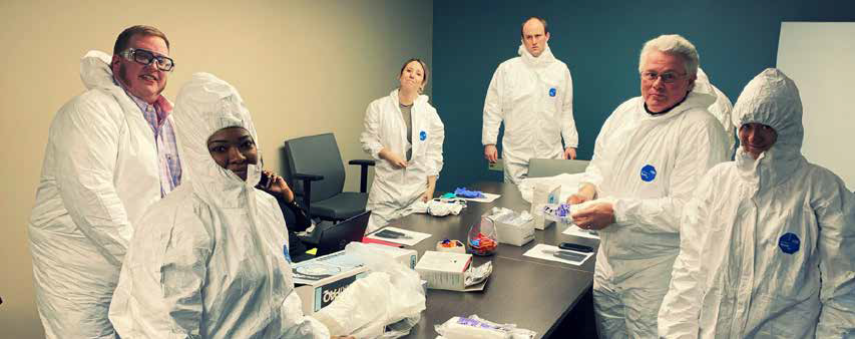Strengthening the Ties Between Primary care and Public Health

By Dennis Archambault
Pandemics, like wars and other catastrophic experiences, offer lessons that, when realized and learned, can improve the human condition. One of the lessons learned during the COVID-19 pandemic is the importance of the primary care provider in collaborating with public health officials to mitigate the effects of the disease outbreak. Primary care practices, such as Authority Health’s Popoff Family Health Center, are embedded in neighborhoods and connected to community through individual patients and community stakeholders. They assume additional risk to provide care, screenings, vaccines, and other community engagement and education. And during the lockdown and varying degrees of isolation that followed, telehealth capabilities came of their own in short-distance urban settings.
Michigan writers, in an article published in winter The Millbank Quarterly, argue that fostering greater collaboration between public health and primary care through the Affordable Care Act’s Prevention and Public Health Fund, is a sensible way to advance community health. “Primary care emerged as central to public health’s pandemic mitigation strategies,” the authors contend. “Under very difficult circumstances, primary care physicians did an exemplary job in treating COVID-19 patients and participating in vaccination campaigns.” This brought to light the core value of primary care, especially as practiced among populations most vulnerable to the pandemic. “A key lesson from COVID-19 is that expanding the scope of primary care to include population health better aligns medical care and public health to improve health outcomes.”
Primary car practices need financial incentives to expand beyond the public health role they currently play to increased screenings, analysis of social determinants of health, providing community education and social marketing, and addressing systemic contributors to the social determinants. The authors note that not only do primary care providers need better reimbursement, but they also need training to understand the expanded role they can and need to play in promoting population health.
That is precisely the value of teaching health centers such as Authority Health, where medical residents are based in community health centers like Popoff and gain an appreciation for the lived experiences of their patients. Additionally, they delve into population health through a required University of Michigan certification program, as well as training in trauma-informed care and antiracism/social justice.
The future of community health lies in the integration of primary care and public health – and to increase funding available to incentivize this fusion. As the writers note, “Building on the lessons learned is essential to meet the ever-increasing public health challenges facing us all.”
Marianne Udow-Phillips, Samantha Iovan, from the Center for Health & Research Transformation, and Peter D. Jacobson, retired from the faculty of the University of Michigan School of Public Health, contributed to The Millbank Quarter article. Dennis Archambault is vice president of Public Affairs for Authority Health.
Tags: primary care, public health